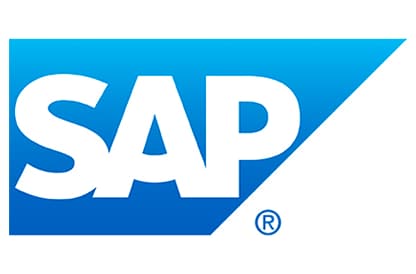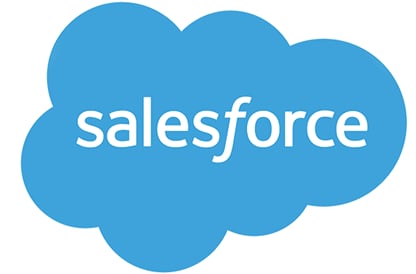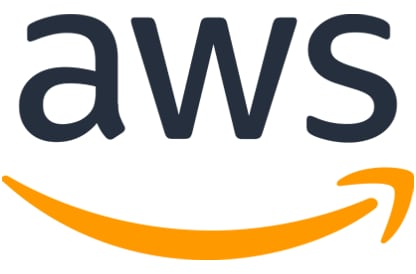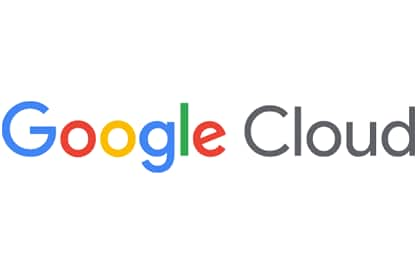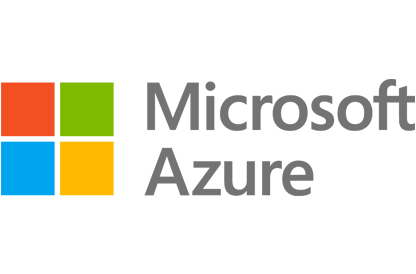Why OpenText
Why OpenText
Overview Why OpenText
OpenText brings decades of expertise to help you unlock data, connect people and processes, and fuel AI with trust
Manage and connect data
Unify data seamlessly across your enterprise to eliminate silos, improve collaboration, and reduce risks
AI-ready information
Get AI-ready and transform your data into structured, accessible, optimized information
Built-in security and compliance
Meet regulatory and compliance requirements and protect your information throughout its lifecycle
Empowering people
Overview Empowering people
OpenText helps people manage content, automate work, use AI, and collaborate to boost productivity
Customers
See how thousands of companies around the world are succeeding with innovative solutions from OpenText
Employees
Our people are our greatest asset; they are the life of the OpenText brand and values
Corporate Responsibility
Learn how we aspire to advance societal goals and accelerate positive change
Partners
Find a highly skilled OpenText partner with the right solution to enable digital transformation
How we compare
Content Management
Service Management
Deploy anywhere
Overview Deployment options
Explore scalable and flexible deployment options for global organizations of any size
Sovereign cloud
Local control. Global scale. Trusted AI
Private cloud
Your cloud, your control
On-premises
Free up resources, optimize performance and rapidly address issues
Public cloud
Run anywhere and scale globally in the public cloud of your choice
AI leadership
Overview Aviator AI
See information in new ways
OpenText™ Aviator AI
AI that understands your business, your data, and your goals
OpenText™ MyAviator
Say hello to faster decisions. Your secure personal AI assistant is ready to get to work
OpenText™ Business Network Aviator
Gain better insights with generative AI for supply chains
OpenText™ Content Aviator
Power work with AI content management and an intelligent AI content assistant
OpenText™ Cybersecurity Aviator
Improve your security posture with AI cybersecurity and agile threat detection
OpenText™ DevOps Aviator
Enable faster app delivery, development, and automated software testing
OpenText™ Experience Aviator
Elevate customer communications and experiences for customer success
OpenText™ Service Management Aviator
Empower users, service agents, and IT staff to find the answers they need
Aviator AI
Overview Aviator AI
See information in new ways
OpenText™ Aviator AI
AI that understands your business, your data, and your goals
OpenText™ MyAviator
Say hello to faster decisions. Your secure personal AI assistant is ready to get to work
OpenText™ Business Network Aviator
Gain better insights with generative AI for supply chains
OpenText™ Content Aviator
Power work with AI content management and an intelligent AI content assistant
OpenText™ Cybersecurity Aviator
Improve your security posture with AI cybersecurity and agile threat detection
OpenText™ DevOps Aviator
Enable faster app delivery, development, and automated software testing
OpenText™ Experience Aviator
Elevate customer communications and experiences for customer success
OpenText™ Service Management Aviator
Empower users, service agents, and IT staff to find the answers they need
Analytics
Overview Analytics
Predict, act, and win with real-time analytics on a smarter data platform
OpenText™ Aviator Search(AI)
Give users access to the answers they need, faster and easier, with multi-repository AI-based search that lets you contextualize everything from clicks to conversations
Business Network
Overview Business Network
Connect once, reach anything with a secure B2B integration platform
Content
Overview Content
Reimagine knowledge with AI-ready content management solutions
OpenText™ Content Aviator(AI)
Supercharge intelligent workspaces with AI to modernize work
Cybersecurity
Overview Cybersecurity
Integrated cybersecurity solutions for enterprise protection
OpenText Cybersecurity for SMBs & MSPs
Purpose built data protection and security solutions
OpenText™ Cybersecurity Aviator(AI)
Reinvent threat hunting to improve security posture with the power of agile AI
DevOps
Overview DevOps
Ship better software—faster—with AI-driven DevOps automation, testing, and quality
Experience
Overview Experience
Reimagine conversations with unforgettable customer experiences
Observability and Service Management
Overview Observability and Service Management
Get the clarity needed to cut the cost and complexity of IT operations
OpenText™ Service Management Aviator(AI)
Redefine Tier 1 business support functions with self-service capabilities from private generative AI
APIs
Overview APIs
Build custom applications using proven OpenText Information Management technology
OpenText™ API Services
Build it your way with OpenText Cloud APIs that create the real-time information flows that enable custom applications and workflows
Device and Data Protection
Overview Device and Data Protection
Protect what matters, recover when it counts
Unified Endpoint Management Tools
- OpenText™ Endpoint Management
- OpenText™ ZENworks Suite
- OpenText™ ZENworks Service Desk
- OpenText™ ZENworks Configuration Management
- OpenText™ ZENworks Endpoint Security Management
- OpenText™ ZENworks Full Disk Encryption
- OpenText™ ZENworks Endpoint Software Patch Management
- OpenText™ ZENworks Asset Management
Solutions
Trusted Data & AI
Overview Trusted Data & AI
Secure information management meets trusted AI
OpenText AI Data Platform
A unified data framework to elevate data and AI trust
OpenText Aviator Studio
A place where you can build, deploy, and iterate on agents in your data's language
OpenText Discovery
A set of tools to help ingest data and automate metadata tagging to fuel AI
OpenText Data Compliance
A suite of services and APIs that make governance proactive and persistent
OpenText Aviator AI Services
Professional services experts who help you on your AI journey
Information Reimagined
Overview Information Reimagined
Get greater visibility and sharper insights from AI-driven information management. Ready to see how?
Knowledge reimagined
Transform daily work with enterprise content management powered by AI
Service Management reimagined
Cut the cost and complexity of IT service management, AIOps, and observability
Connections reimagined
AI-powered B2B integration for supply chain success
Conversations reimagined
Drive value, growth, and loyalty with connected customer experiences
Engineering reimagined
Agile development and software delivery? It only seems impossible
Security reimagined
Cybersecurity for the Enterprise
Decisions reimagined
Unlock insights with AI data analytics
Artificial Intelligence
Overview Aviator AI
See information in new ways
OpenText™ Aviator AI
AI that understands your business, your data, and your goals
OpenText™ MyAviator
Say hello to faster decisions. Your secure personal AI assistant is ready to get to work
OpenText™ Business Network Aviator
Gain better insights with generative AI for supply chains
OpenText™ Content Aviator
Power work with AI content management and an intelligent AI content assistant
OpenText™ Cybersecurity Aviator
Improve your security posture with AI cybersecurity and agile threat detection
OpenText™ DevOps Aviator
Enable faster app delivery, development, and automated software testing
OpenText™ Experience Aviator
Elevate customer communications and experiences for customer success
OpenText™ Service Management Aviator
Empower users, service agents, and IT staff to find the answers they need
Industry
Overview Industry solutions
Improve efficiency, security, and customer satisfaction with OpenText
Energy and resources
Transform energy and resources operations with cloud, cybersecurity, and AI
Financial services
Boost customer experience, compliance, and efficiency with AI
Government
Reimagine your mission with government-secure information management
Healthcare and life sciences
Improve care delivery and patient engagement with AI-powered solutions
Legal
Modernize legal teams with automated, AI-powered legal tech solutions
Manufacturing
Modernize manufacturing operations and logistics to reduce costs and ensure compliance
Retail and consumer goods
Enhance consumer engagement with omnichannel retail solutions and AI
Enterprise Application
Overview Solutions for Enterprise Applications
Run processes faster and with less risk
Services
Services
Overview Services
Achieve digital transformation with guidance from certified experts
Professional Services
Modernize your information management with certified experts
Customer Success Services
Meet business goals with expert guidance, managed services, and more
Support Services
Turn support into your strategic advantage
Managed Services
Free up your internal teams with expert IT service management
Learning Services
Discover training options to help users of all skill levels effectively adopt and use OpenText products
Professional Services
Overview Professional Services
Modernize your information management with certified experts
Customer Success Services
Overview Customer Success Services
Meet business goals with expert guidance, managed services, and more
Support Services
Overview Support Services
Turn support into your strategic advantage
Managed Services
Overview Managed Services
Free up your internal teams with expert IT service management
Learning Services
Overview Learning Services
Discover training options to help users of all skill levels effectively adopt and use OpenText products
Partners
Find a Partner
Overview Find a partner
Information is the heartbeat of every organization. We build information management software so you can build the future
Cloud Partners
Overview Cloud Partners
OpenText partners with leading cloud infrastructure providers to offer the flexibility to run OpenText solutions anywhere
Enterprise Application Partners
Overview Enterprise Application Partners
OpenText partners with top enterprise app providers to unlock unstructured content for better business insights
Partner Solutions
Overview Partner Solutions
Discover flexible and innovative offerings designed to add value to OpenText solutions
Resources for Partners
Overview Resources for Partners
Discover the resources available to support and grow Partner capabilities
Support
Overview Customer Support
Get expert product and service support to accelerate issue resolution and keep business flows running efficiently
Resources
Overview Resources
Explore detailed services and consulting presentations, briefs, documentation and other resources
Choose your region:
Europe, Middle East and Africa
Asia–Pacific
 Migros
Migros
Delivering faster time to market and cost savings with a ‘cloud-first’ strategy for application delivery management

Outcomes
- Migrated 100K test scripts, 10K defects to Core Software Delivery Platform
- SaaS aligns with cloud-first strategy
- Faster releases via test automation
- SSO onboarding and supports hybrid dev model
Challenge
Navigate a hybrid development environment with consistent application testing while creating more transparency and saving costs.
Details
Flexible OpenText™ response to ‘cloud-first’ approach
A long-term OpenText™ customer, Migros first leveraged OpenText™ Application Quality Management, OpenText™ Functional Testing, and OpenText™ Business Process Testing (BPT) 10 years ago when the launch of large-scale SAP implementation revealed shortcomings in their existing application testing systems.
Thomas Bertogg, Head of Release and Test Management with Migros, explains: “Up until then we had manually managed our application testing using spreadsheets. As a result, our test management was quite weak, and we didn’t have a good overview of defects in particular. Once we implemented the OpenText technology, the solutions served us very well for nearly 10 years. Our SAP implementation grew to over 10,000 users and we leverage most of the common SAP modules to run our business: finance, human capital management, logistics, supply chain etc. We are now moving towards a full HANA implementation which increases the complexity of our test environment.”
Migros recently adopted a ‘cloud-first’ approach to its IT, outsourcing much of its platform management to partner ATOS so that it can focus on its core business and competencies instead of system administration. Within the testing team this meant a renewed focus on structuring test management and its methodology. In a bid to be more responsive to change requests, and reduce time to market for new releases, the organization moved towards a DevOps and Agile way of working. As this is not a swift transition it looked for a test solution that could support a hybrid development model. The team was introduced to the SaaS version of OpenText Application Quality Management and adopted this to eliminate on-premises maintenance, upgrade, and system administration activities, while complying with a new corporate standard.
With excellent support from OpenText we have been able to follow our corporate ‘cloud-first’ approach while introducing streamlined test automation for increased application quality and improved process governance.
Supporting a hybrid development model
Migros learned about OpenText™ Core Software Delivery Platform through the OpenText™ Embrace DevOps community. OpenText Core Software Delivery Platform ensures high quality application delivery and continuous integration via enterprise DevOps and Agile management. “OpenText Core Software Delivery Platform is on Cloud, and gives us a way to directly integrate to our growing DevOps world,” comments Bertogg. “We work with Jenkins and GitLab: OpenText Core Software Delivery Platform’s REST API support lets us seamlessly integrate these. We like OpenText Core Software Delivery Platform’s modern look-and-feel and the dashboard capabilities. Most of all, we appreciate that OpenText Core Software Delivery Platform can support a fully hybrid development model. Much of our SAP testing still follows a waterfall methodology, while our web applications run using an agile process. OpenText Core Software Delivery Platform supports both, even within the same development projects.”
OpenText Application Quality Management’s 100,000 existing test scripts and over 10,000 defect reports were seamlessly migrated to OpenText Core Software Delivery Platform. This ensures they remain available for reuse, safeguarding the intellectual and financial investment, and auditing purposes. Soon Migros will look to integrate OpenText Functional Testing with GitLab and connect it to OpenText Core Software Delivery Platform, providing state-of-the-art test automation in a DevOps environment. Test automation for the Migros SAP applications is currently provided through BPT, with OpenText Functional Testing managing SAP regression testing and functional testing for SAP Fiori applications. The SAP Fiori applications are tested through OpenText Functional Testing’s cross-browser and browser device-emulation mode. Leveraging the browser emulation mode the team saves much time by testing the responsive web design of Fiori applications on real mobile devices. The vision is to extend this automation by including it into the continuous integration pipeline.
JIRA, in use with many of the agile development teams, will be integrated into OpenText Core Software Delivery Platform too, leveraging OpenText Application Quality Management Connect. Connect is a data synchronization technology that provides data and relationship synchronization between products across the software development and DevOps lifecycle. Consolidating the environment will bring cost savings, and much-needed transparency and visibility to support regular audits.
OpenText Core Software Delivery Platform deployment and SSO support promote fast user adoption
It is important that OpenText Core Software Delivery Platform offers an easy adoption path for the many other companies that make up the Migros family. OpenText Core Software Delivery Platform’s SaaS deployment means that new adopters do not need to install any client software, making it far easier to scale and reach new teams. “We have only been live with OpenText Core Software Delivery Platform for about six months, and already I’m receiving weekly calls from teams asking for OpenText Core Software Delivery Platform access for their agile projects,” says Bertogg. “Different teams often work on completely different networks, but this is not an issue for at all. A big advantage for users is the single-sign on we introduced within OpenText Core Software Delivery Platform, by integrating it with our Active Directory (AD) for credentials authentication. It makes it far easier for users to access and it improves our security.”
He concludes: “With excellent support from OpenText we have been able to follow our corporate ‘cloud-first’ approach while introducing streamlined test automation for increased application quality and improved process governance. We have a much better overview of all steps throughout our hybrid software development lifecycle and are able to reduce our time to market.”
OpenText Core Software Delivery Platform is on Cloud, and gives us a way to directly integrate to our growing DevOps world. We work with Jenkins and GitLab and OpenText Core Software Delivery Platform’s support for REST APIs lets us seamlessly integrate these.
About Migros

Migros is Switzerland’s largest retail company, largest supermarket chain, and largest employer. Structured as a cooperative federation with more than two million members, Migros is also one of the forty largest retailer in the world.
